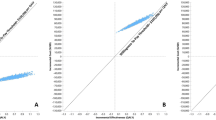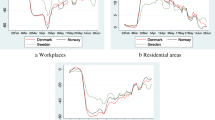Abstract
Purpose of Review
Cardiovascular medications improve health and prevent early death. However, high drug prices reduce the use of these medications and strain the health system. The Inflation Reduction Act (IRA) of 2022 allows Medicare to negotiate drug prices with manufacturers and reduces out-of-pocket drug costs for Medicare beneficiaries. This article explores the potential impact that the IRA will have on the treatment of cardiovascular disease.
Recent Findings
Cardiovascular disease medications are likely to be selected for price negotiations under the IRA, leading to savings for patients and for Medicare. Recent work suggests that the IRA’s reforms to the Medicare Part D drug benefit will meaningfully reduce out-of-pocket costs for important cardiovascular medications.
Summary
The IRA is expected to impact cardiovascular disease treatments via price negotiations and through the broader access to medications afforded by improvements to Part D coverage design.
Similar content being viewed by others
References
Papers of particular interest, published recently, have been highlighted as: • Of importance •• Of major importance
Ward C, Ewald E, Koenig K, Schluterman N. Prevalence and Health Care Expenditures among Medicare Beneficiaries Aged 65 Years and Over with Heart Conditions. Centers for Medicare & Medicaid Services. Published December 2017. Accessed February 1, 2023. https://www.cms.gov/Research-Statistics-Data-and-Systems/Research/MCBS/Downloads/HeartConditions_DataBrief_2017.pdf.
•• Dusetzina SB, Huskamp HA, Rothman RL, et al. Many Medicare Beneficiaries Do Not Fill High-Price Specialty Drug Prescriptions. Health Aff (Millwood). 2022;41(4):487–496. https://doi.org/10.1377/hlthaff.2021.01742. Findings from this study suggest that 25 to over 50% of Medicare beneficiaries who lack low-income subsidies do not fill high-priced medications that were prescribed by their doctors.
•• Chandra A, Flack E, Obermeyer Z. The Health Costs of Cost-Sharing. Natl Bur Econ Res Work Pap. Published online February 2021. Findings from this study suggest that increases in out-of-pocket costs are associated with increased mortality among Medicare beneficiaries.
Choudhry NK, Avorn J, Glynn RJ, et al. Full Coverage for Preventive Medications after Myocardial Infarction. N Engl J Med. 2011;365(22):2088–97. https://doi.org/10.1056/NEJMsa1107913.
Ma I, Tisdale RL, Vail D, Heidenreich PA, Sandhu AT. Utilization of Generic Cardiovascular Drugs in Medicare’s Part D Program. Circ Cardiovasc Qual Outcomes. 2021;14(12):e007559. https://doi.org/10.1161/CIRCOUTCOMES.120.007559.
Rome BN, Egilman AC, Kesselheim AS. Trends in Prescription Drug Launch Prices, 2008–2021. JAMA. 2022;327(21):2145–7. https://doi.org/10.1001/jama.2022.5542.
GoodRx. Accessed February 1, 2023. https://www.goodrx.com/.
Medicare Part D—Use of Pharmacy Benefit Managers and Efforts to Manage Drug Expenditures and Utilization.Government Accountability Office; 2019.
Prescription Drugs—U.S. Prices for Selected Brand Drugs Were Higher on Average than Prices in Australia, Canada, and France. Government Accountability Office; 2021.
Prescription Drugs—Department of Veterans Affairs Paid About Half as Much as Medicare Part D for Selected Drugs in 2017. Government Accountability Office; 2020.
Wang B, Liu J, Kesselheim AS. Variations in Time of Market Exclusivity Among Top-Selling Prescription Drugs in the United States. JAMA Intern Med. 2015;175(4):635–7. https://doi.org/10.1001/jamainternmed.2014.7968.
The Bristol-Myers Squibb-Pfizer Alliance is pleased with the decision by the U.S. Court of Appeals for the Federal Circuit upholding the Eliquis Patents. BMS Press Release. Published September 3, 2021. Accessed February 1, 2023. https://news.bms.com/news/corporate-financial/2021/The-Bristol-Myers-Squibb-Pfizer-Alliance-is-pleased-with-the-decision-by-the-U.S.-Court-of-Appeals-for-the-Federal-Circuit-upholding-the-Eliquis-Patents/default.aspx.
Johnson M, Nayak R, Kishore S. Which Drug Prices Will Medicare Negotiate First? A Physicians’ Perspective. Health Aff Forefr. Published online September 30, 2022. https://doi.org/10.1377/forefront.20220929.242021.
• Explaining the Prescription Drug Provisions in the Inflation Reduction Act. KFF. Published January 24, 2023. Accessed February 1, 2023. https://www.kff.org/medicare/issue-brief/explaining-the-prescription-drug-provisions-in-the-inflation-reduction-act/. This article highlights the provisions of the Inflation Reduction Act of 2022.
Sachs R. Understanding The Democrats’ Drug Pricing Package. Health Aff Forefr. https://doi.org/10.1377/forefront.20220810.661571.
Johnson M, Nayak RK, Gilstrap L, Dusetzina SB. Estimation of Out-of-Pocket Costs for Guideline-Directed Medical Therapy for Heart Failure Under Medicare Part D and the Inflation Reduction Act. JAMA Cardiol. Published online January 11, 2023. https://doi.org/10.1001/jamacardio.2022.5033.
Estimated Budgetary Effects of Public Law 117–169, to Provide for Reconciliation Pursuant to Title II of S. Con. Res. 14. Congressional Budget Office; 2022.
Congressional Budget Office. Estimated Budgetary Effects of Subtitle I of Reconciliation Recommendations for Prescription Drug Legislation. Published online July 8, 2022:5.
Johnson M, Berwick DM. Medicare 2.0—A Vision for the Future of America’s Health Insurance Plan. JAMA. 2022;328(21):2107. https://doi.org/10.1001/jama.2022.22092.
Author information
Authors and Affiliations
Corresponding author
Ethics declarations
Conflict of Interest
Micah Johnson reports consulting for the Center for American Progress on Medicare reform. Sanjay Kishore is employed by the Equal Justice Initiative, a nonprofit 501c3 organization. Rahul K. Nayak has nothing to disclose. Stacie B. Dusetzina is a member of the Institute for Clinical and Economic Review (ICER) Midwest Comparative Effectiveness Public Advisory Council, a member of the Council for Informed Drug Spending Analysis for West Health, and served on the National Academy of Sciences, Engineering, and Medicine Committee “Ensuring Patient Access to Affordable Drug Therapies.” She serves on the Medicare Payment Advisory Commission. The views expressed in this article are the author’s own and do not reflect the view of the Commission. The authors declare that they have no conflict of interest.
Human and Animal Rights and Informed Consent
This article does not contain any studies with human or animal subjects performed by any of the authors.
Additional information
Publisher's Note
Springer Nature remains neutral with regard to jurisdictional claims in published maps and institutional affiliations.
Rights and permissions
Springer Nature or its licensor (e.g. a society or other partner) holds exclusive rights to this article under a publishing agreement with the author(s) or other rightsholder(s); author self-archiving of the accepted manuscript version of this article is solely governed by the terms of such publishing agreement and applicable law.
About this article
Cite this article
Johnson, M., Kishore, S., Nayak, R.K. et al. The Inflation Reduction Act: How Will Medicare Negotiating Drug Prices Impact Patients with Heart Disease?. Curr Cardiol Rep 25, 577–581 (2023). https://doi.org/10.1007/s11886-023-01878-7
Accepted:
Published:
Issue Date:
DOI: https://doi.org/10.1007/s11886-023-01878-7




